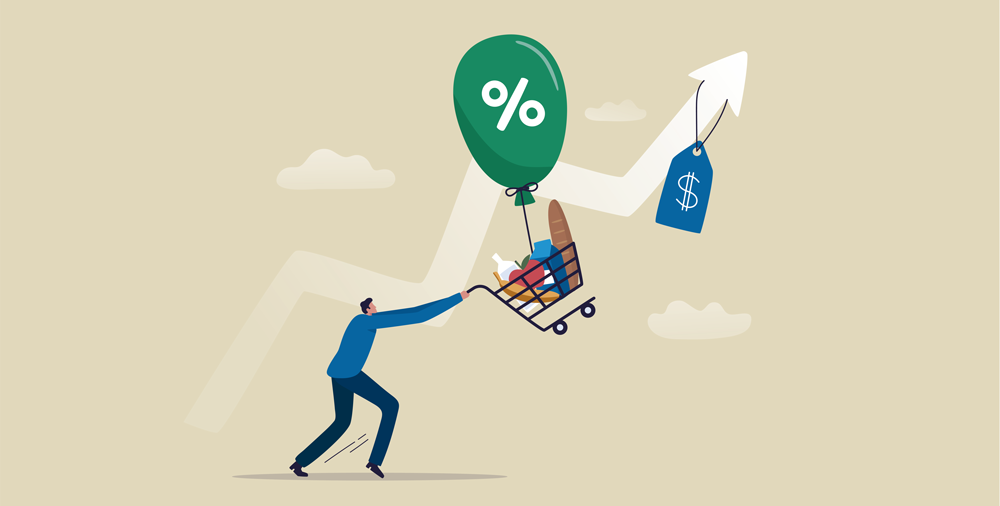Source:https://www.retailtouchpoints.com
In an environment where inflation still remains stubbornly high, consumers continue to be more price-sensitive than ever.
Massive supply chain disruptions and higher materials costs in the early days of the pandemic forced many retailers to raise their prices and many consumers to adapt their shopping habits. Three years later, even though life has seemingly returned “back to normal,” we’re still seeing the residual effects of these shifts.
Today, consumers are shopping smarter and looking for more ways to save on the products they love, according to a recent RetailMeNot survey — a Ziff Davis Shopping brand — on the latest retail and shopping trends. The survey found price is taking precedence over loyalty, as 71% of consumers now make purchase decisions based on available deals.
As we look to another year of shopping and spending, retailers can adopt a range of strategies to keep current customers loyal, attract new ones and better meet all their needs even in these challenging economic times.
‘Spend Less, Save More’ is the Theme for Consumers This Year
With inflation still hovering at just under 5%, more consumers plan to curb their discretionary spending. This year, 47% say they will cut back on spending, compared to 40% in 2022. Personal and streaming services, music and fitness are the categories likely to see some of this pullback.
Though more consumers say it’s financially harder to sustain their household, they aren’t entirely willing to give up on their needs. Instead, they’re adjusting their shopping habits and looking for alternative ways to save. Experimenting with generic brands, using coupons and taking advantage of rewards and loyalty programs are just some of the methods they’re using to keep more money in their pockets. In particular, consumers are searching for incentives such as:
- Free shipping: 67%
- Digital Coupons: 43%
- Loyalty Points: 42%
- Cash Back Program: 38%
- Price Matching: 31%
- Retailer or retailer-specific apps: 22%
But as consumers hunt for deals, they’re also subconsciously always shopping, which means retailers may have even more opportunities to engage them at different stages of the funnel. With the right tactics and strategies, retailers can win the business — and potentially, loyalty — of price-conscious shoppers.
How Retailers can Unlock New Opportunities
As higher prices reshape consumer shopping patterns, smart retailers can do several things to adjust and give consumers more reasons to buy with them, including:
Consider consumers’ all-in costs.
The upfront cost of a product doesn’t just include the actual price on the label; consumers also have to factor in shipping costs, taxes and other fees.
To help reduce some of these costs, retailers should offer incentives such as free shipping, discount codes, cash back offers and loyalty program rewards. Retailers should consider offering these deals as exclusive discounts for customers who enroll in their loyalty program or meet certain purchasing thresholds, such as those who make at least a $50 purchase. They also can incentivize shoppers with a discount on a future purchase, boosting the likelihood they’ll shop with them more than once.
Guide the shopper journey.
Consumers are inundated with marketing messages, which can make it more overwhelming to make a carefully considered buying decision.
They need expert advice to ensure their hard-earned money isn’t wasted. Retailers can fill this gap by doing more than just selling — they also can give consumers valuable information to help them make an informed buying decision.
Engaging content or gift guides can direct shoppers toward the best deals and even help them discover new products. Expert reviews and expanding influencer marketing also can be effective to engage consumers at the top of the funnel and increase their awareness of certain products they may not have previously considered.
Beyond price, retailers can offer more value to consumers in several ways. Educating shoppers is one of them. Adopting this approach may foster greater trust and loyalty that ultimately drives greater customer lifetime value.
Nurture brand exploration.
Our survey found that promotions spur more than half of shoppers to either try new brands or more expensive brands.
With this in mind, retailers should craft compelling promotions and offers that not only provide savings but also serve as a gateway for consumers to discover and experience new brands.
Retailers can use digital channels for this purpose. Consumers are now embracing social shopping and are more likely to use Facebook for these purchases, followed by YouTube, Instagram and then Pinterest. Retailers can capitalize on this change in behavior by deploying targeted social promotions and offers that encourage shopper substitution. For example, flash deals, “Try Now, Pay Later” options, bundles and value packs all could nudge price-conscious shoppers to potentially replace a product staple in their shopping carts with a similar, though more budget-friendly brand.
Tap into first-party data.
Retailers should lean on first-party data to support all these marketing efforts. Whether it’s from their direct-to-consumer (D2C) site, social media channels, subscription or loyalty programs, first-party data is rich with insights retailers can use to push out triggered, automated promotional messages to acquire, engage and convert users on- and off-platform. Leveraging this data also can reduce customer acquisition costs, and potentially customer churn, boosting marketing ROI and conversion rates and accelerating the sales cycle in the process.
As companies target price-sensitive consumers, they also must be aware of their own costs to do so. Employing a data-driven approach can make their marketing campaigns more impactful and effective.
Capturing Shoppers’ Attention Amid Inflation
Rising costs are compelling consumers to explore new ways to save, whether it’s prioritizing free shipping, shopping with retailers that offer price matching or taking the time to clip coupons.
In these uncertain economic times, savvy retailers will adapt their marketing strategies to give these savvy, budget-conscious shoppers exactly what they’re looking for — quality products at a reasonable price.




